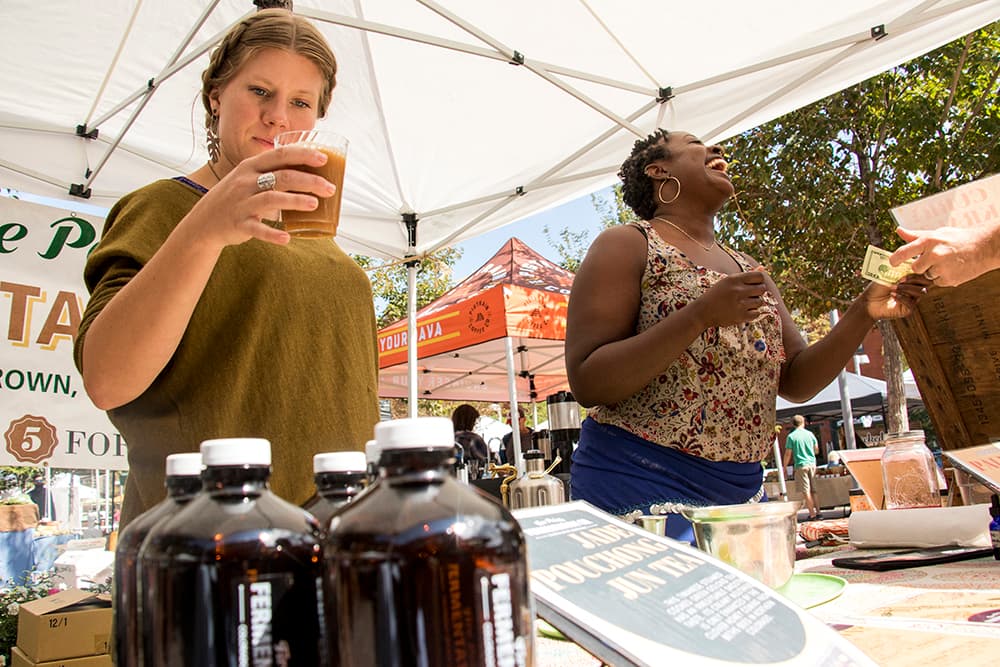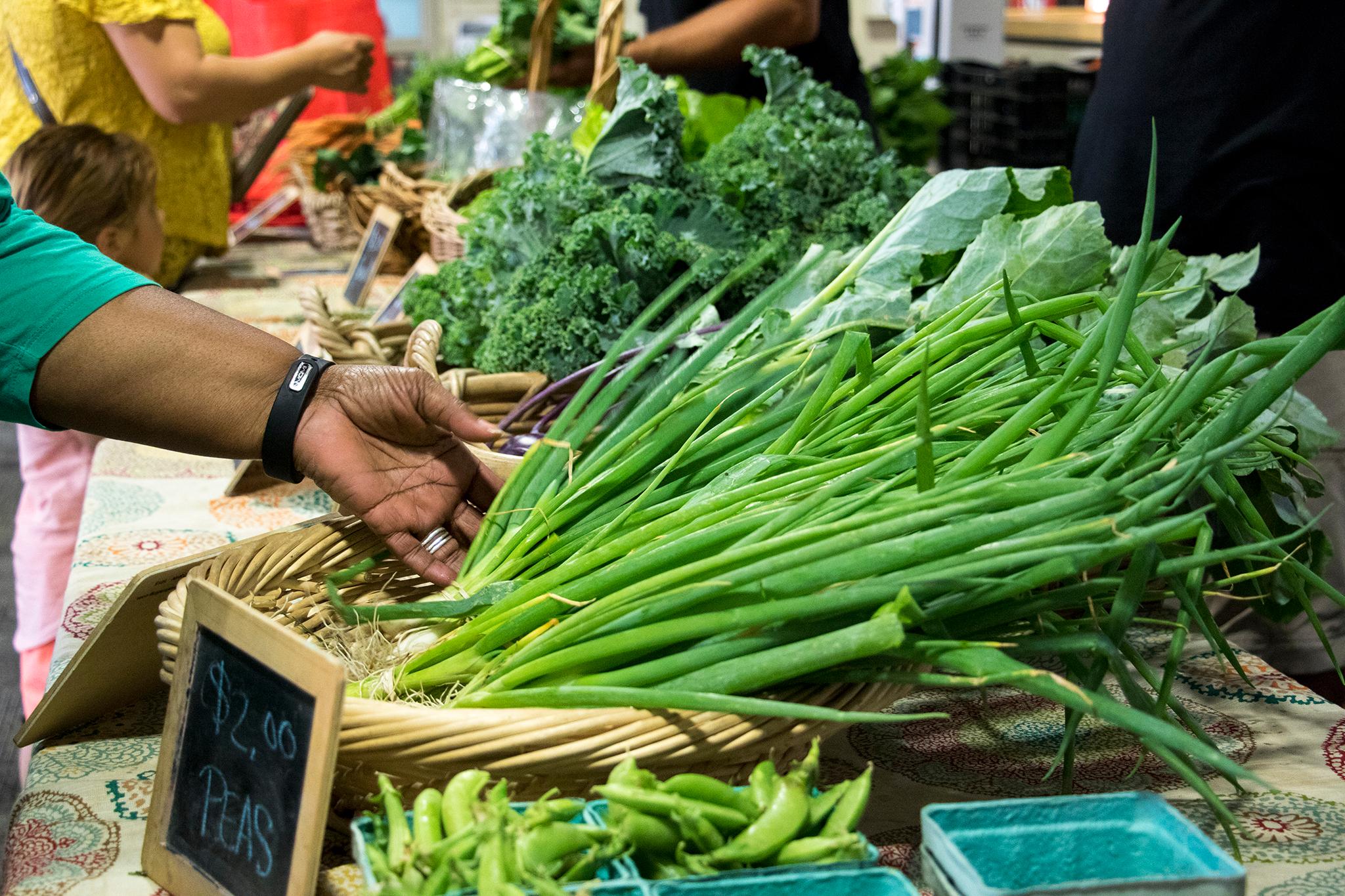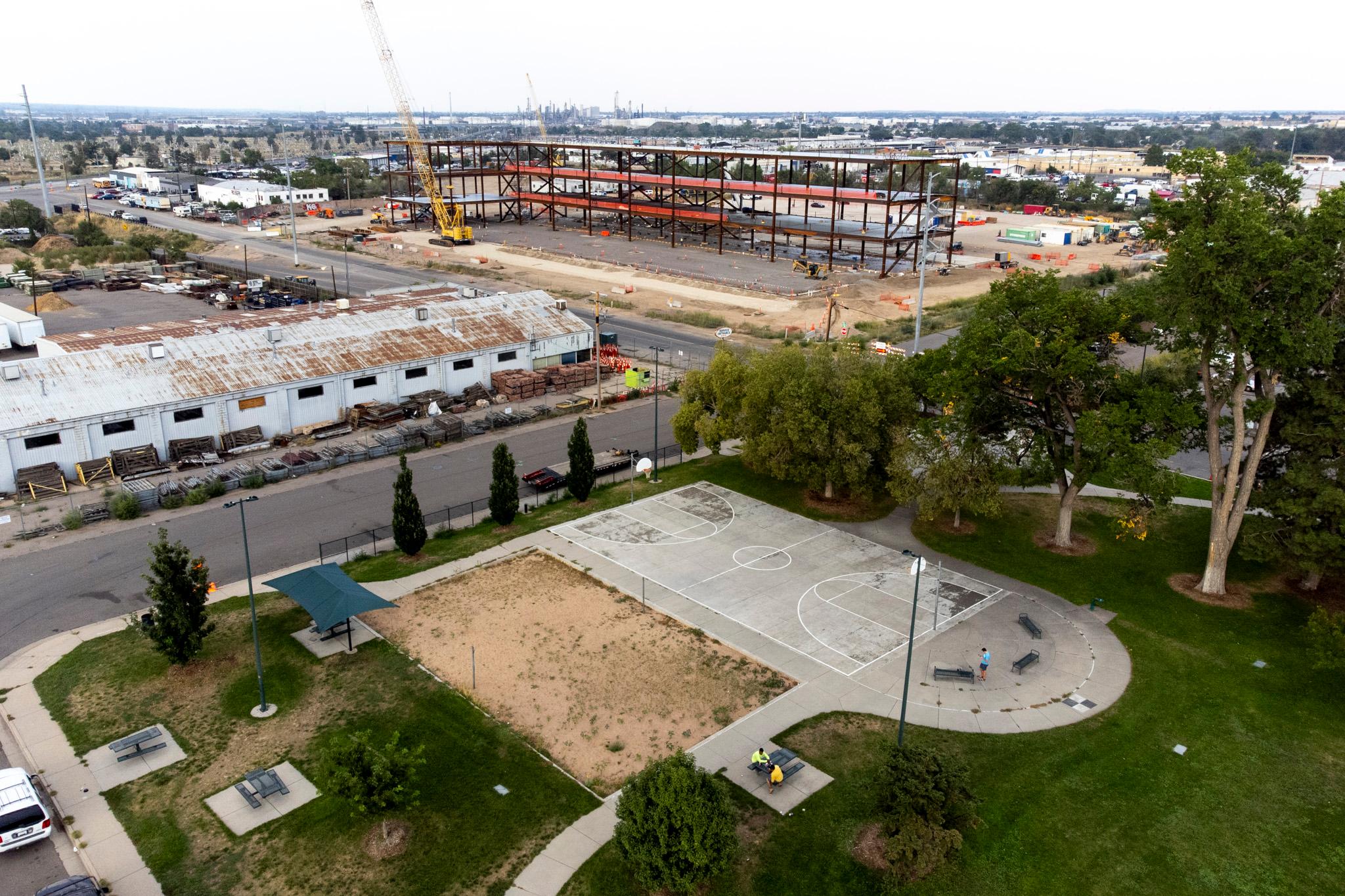By Paul Albani-Burgio
When it comes to COVID-19, Kelly Williams is trying to stay optimistic.
"Every day I'm just hoping it goes away and saying 'is it gone yet?'" Williams said.
But even as Williams remains hopeful the devastating spread of the disease will come to an end sooner rather than later, she is making preparations to operate the Highlands Farmers Market in Highlands Square in a climate that continues to be defined by concerns about social distancing and hygiene.
The market is slated to start its season on May 31, and Williams said she has been issued her usual permits by the city to open it on that date. Those permits, along with language in Gov. Jared Polis' order categorizing farmers' markets as essential businesses like grocery stores, have left Williams feeling confident that the Highlands Farmers' Market will be able to open on-time.
The bigger question now, she said, is what the market will look like, particularly if social distancing recommendations are still in place.
Williams said she has been mulling over a plan b, where people would order items online and pick up their boxed order from market staff. Then there's her plan c, which would involve allowing small groups of no more than 10 people to come shop in the market in scheduled sessions that would allow them to maintain social distancing.
But while Williams thinks there is a good chance one of those plans will eventually need to be implemented, she said the minute-by-minute nature of the crisis means she is waiting to make any final decisions.
"I just want to make sure that we do this in compliance, that we get the food out safely and that the farms and small businesses that are getting devastated right now have the opportunity to stay in business," Williams said.
A temporary loss of community
While Williams is taking a wait-and-see approach with her markets, those who frequent the Union Station Farmers' Market can now expect it to start its season on May 9 with an online ordering and pick-up system like the one Williams is considering.
Brian Coppom, who operates the Union Station Farmers' Market plus three others in Boulder County under the Boulder County Farmers' Markets umbrella, said he made that decision because he doesn't think it makes sense for markets to continue standard operations until "we are on the downward slope of the COVID-19 curve." He thinks online ordering and curbside pickup will be "not only safe but really efficient for people" and could even continue as an alternative option after the markets resume regular operations.
Still, Coppom said he is eager for regular business to resume and thinks his vendors and customers will be as well.
"That's because the online ordering is an efficient way to deliver food, but it's not an efficient way to deliver community," he said. "And a lot of what the markets bring is that sense of community and that sense of place and belonging and connection."
The possibility of the temporary loss of that interactive and communal experience is also a big concern for Pontus Jakobsson, the owner and beekeeper at Bjorn's Colorado Honey, as he approaches the farmer market season when he usually makes most of his honey sales.
"I love that the farmers' market is kind of a linger-y place where you can walk around and try different things and talk with the producer," he said. "My biggest worry is that might not be an option, and even if it is, people's mindset will still be on distancing and shelter at home."
However, Coppom said it is the attractiveness and uniqueness of the farmers' market setting that has him optimistic that all of his vendors will return to his markets, despite the challenges many are currently facing. Williams, too, said she has been getting more requests from potential vendors to participate than ever, a situation she attributes to smaller vendors wanting places to sell things at this time.

The decision of whether -- and how -- to put on markets this year is one that remains on the minds of operators throughout the city. Colorado Fresh Markets President Chris Burke said in an email that his company is "hoping to operate its fresh markets when the time is right and currently working toward (that) end." Colorado Fresh Markets operates both the Cherry Creek Farmers' Market on Saturdays and Wednesdays and the Fetch farmers' market pop-ups at Dairy Block in LoDo and Stanley Marketplace in Aurora.
HobNob Events owner Nicole Jarman said she has had to push forward the start date of the Pearl Street Farmers' Market from May 3 to May 17. But while she's planning for her markets, which also include the Stapleton Farmers' Market, to resume in their traditional form, she says customers can expect changes ranging from the placement of produce behind counters where only staff can handle it to new hand-washing stations and a temporary ban on the reusable bags normally encouraged at farmers' markets . Many of the planned changes are suggestions from a physician at National Jewish Health that Jarman has been consulting with on best practices.
But while Jarman is preparing to open her markets, she's also been focused on a more immediate concern: making sure her vendors can make it through the immediate challenges they are facing as a result of COVID-19.
Last week, Jarman held a conference call with her vendors to discuss their current challenges, including a steep loss in demand for those who provide goods to restaurants.
"We just kind of asked the questions 'how are you doing' and 'how can we support you?'" she said.
Based on the answers she received, Jarman said she is now exploring organizing options, ranging from offering gift baskets containing vendor products for pick-up until the market opens to partnering with a store along Pearl Street to sell vendor products. She's also considering expanding the market to a second day of the week.
She expects to post updates about those efforts to her farmers' markets' websites in coming days, but said getting them off the ground has presented new challenges.
"It's felt like we are trying to rewrite the business model in two days," she said.
When the markets do return to business, they will likely face some increased competition. Demand for grocery staples combined with a ban on dine-in consumption has led several Denver-area food halls to temporarily reinvent themselves as markets for food and other essential items.
At Milk Market, fresh produce, alcohol, meat and prepared meals are now being sold on-site and can also be ordered for pick up online. Denver Central Market has also recently introduced a grocery-boxes-to-go program.
While such competition is one of many challenges for markets posed by COVID-19, Williams said the situation is also serving to emphasize the value of local markets.
"Now, more than ever, I think people are going to want to stay in the community and keep their money in the community and buy local where they can know who is making their food and preparing their soaps," Williams said. "I think that's going to be more important than ever."














